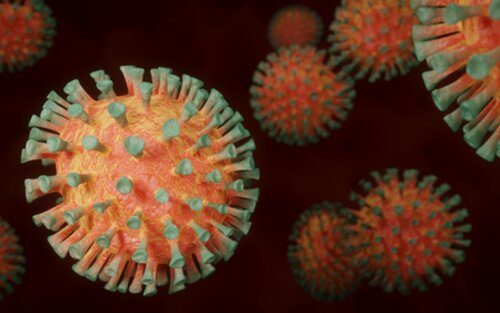As the world adjusts to the ‘new normal’ which has been occasioned by the coronavirus, Persons With Disabilities are still left out in many areas, among them technology. This is according to the National Gender and Equality Commission (NGEC) Chair Dr. Joyce Mutinda who says the pandemic has intensified the levels of inequalities especially in the usage of technology.
“The use of technology including online learning platforms, virtual conferencing, digital mobile money transfers, online shopping and online jobs, which has become the ‘new normal’ has also intensified the levels of inequalities in society, particularly among persons with disabilities,” Dr. Mutinda says.
According to the Commission, a majority of persons with disabilities are unable to take advantage of Information, Communications, and Technology (ICT).
This is mainly due to a lack of adequate adjustments to serve the heterogeneous groups of persons with disabilities, lack of adequate training and mere lack of access to ICT wares.“Stigma and discrimination continue to hinder persons with disabilities from equal participation in all aspects of development,” she says.
According to article 11 of the United Nations Convention on the Rights of Persons with Disabilities (CRPD), Member States should take all necessary measures to ensure the protection and safety of persons with disabilities in situations of risk. Dr. Mutinda however says that despite these provisions, there have been widespread reports of persons with disabilities facing diverse challenges during times of natural calamities such as drought, flooding, disease outbreaks as well as during times of man-made emergencies such as conflicts.
Additionally, the 2030 Agenda for Sustainable Development has set under Goal number 17, an ambitious target (number 17.18) for the Member States to routinely make available high quality, timely and reliable data disaggregated by, among other variables, disability. The Doctor says that most countries today however lack adequate information and data to inform strategies for developing disability-inclusive, accessible, and sustainable post-COVID-19 World.
“To ensure that all social and economic post-COVID-19 recovery measures taken by governments do not actively discriminate or put an increased risk to persons with disabilities, the Government needs to generate and share disaggregate data on the effects and impacts of COVID-19 on persons with disabilities,” she challenged governments.
Government Commitment
Dr. Mutinda is however hopeful that the Kenyan government would be able to address this issue, seeing that it has already made progress for persons with disabilities. Kenya has in the past two decades put in place legal and policy frameworks to progressively support poor and vulnerable populations, including persons with disabilities. Article 21 of the Constitution of Kenya, 2010 presents the Government’s commitment to the realization of the rights of all Kenyans.
Article 43 on Economic and Social Rights, explicitly guarantees the right to the highest standard of health care and services, education, accessible and adequate housing, food security, access to clean water, and social security with an emphasis on persons unable to support themselves or their dependents.
Article 54 provides for the specific rights of persons with disabilities. Article 7 (3)(b) recognizes sign language, braille, and other communication accessible to persons with disabilities as part of the official languages. Kenya is a signatory to the UN Convention of the Rights of Persons with Disabilities (CRPD) which reaffirms that persons with disabilities must enjoy all human rights and fundamental freedoms, including social protection.
Besides, Kenya has made tremendous progress in the development of policies to guide national and county governments in the formulation of strategic programs to advance social protection, economic empowerment, education, health care systems, and physical infrastructure that directly support persons with disabilities.
“The Commission specifically appreciates the government’s response to persons with disabilities affected by the COVID-19 pandemic. More specifically, the provision of direct cash transfers to more than 33,000 persons with disabilities who are not in any form of social protection program since May 2020 is remarkable,” Dr. Mutinda said.
She spoke during this year’s commemoration of International Day of Persons with Disabilities.
Margaret Njuguna

